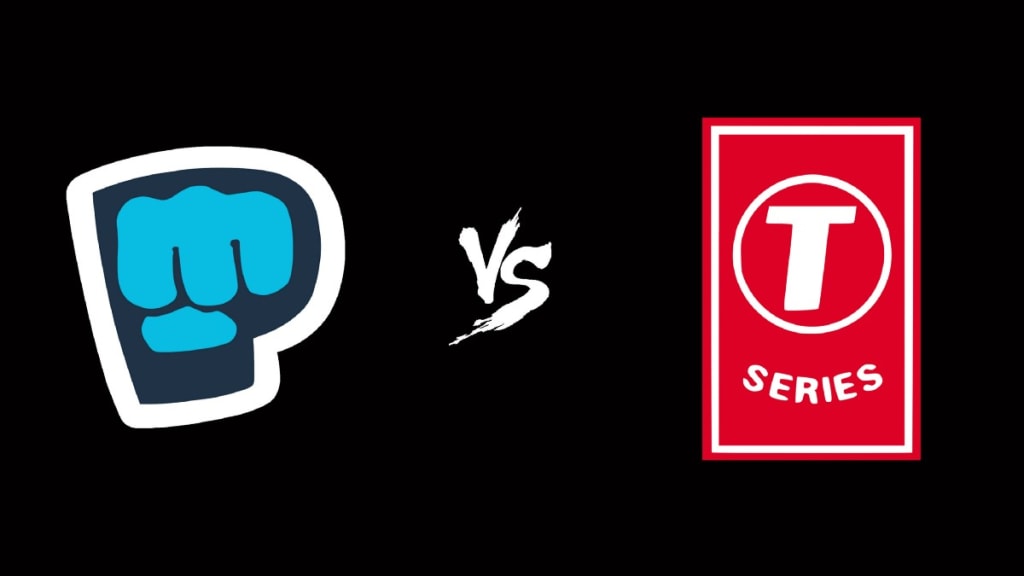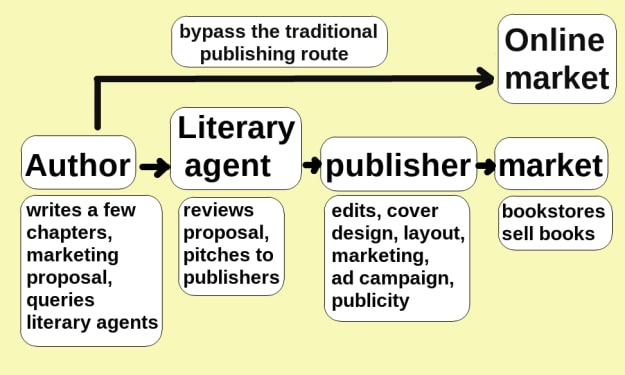What the “PewDiePie vs T-Series” Battle Taught Me About YouTube and Capitalism
One of the biggest battles in YouTube may have ended, but the repercussions it brought on how internet capitalism works could have much longer-lasting effects.

On March 31, 2019, PewDiePie (or Felix Arvid Ulf Kjellberg) uploaded a music video on YouTube titled “Congratulations” months since the supposed rivalry between him, and an Indian music video channel T-Series, run by a corporation founded in 1983 by an Indian fruit juice seller named Gulshan Kumar, had begun. The diss track, the second one PewDiePie had made since the release of “Bitch Lasagna,” throwing insults at T-Series, and making references to Indian stereotypes in the song that caused offense among some Indians, ironically congratulated T-Series for overtaking PewDiePie in terms of subscriber count, and similar to "Bitch Lasagna," attacking the Indian music video channel further, using a new set of Indian stereotypes in the song, and even making some references on India’s economic status, and the infamous caste system. However, what made "Congratulations" different from "Bitch Lasagna" is that it shortly featured PewDiePie thanking all his fans for sticking with him, and his channel through the many controversies he and his channel had been through during his career. This online competition for being the most subscribed YouTube channel in the world evolved into multiple facets, and had gained a considerable amount of following among both fans of the two competing channels, and the general public, despite remarks from PewDiePie in his YouTube channel, saying that the “rivalry” between his channel and T-Series is really nothing, but old fashioned online trolling, and that he doesn’t really care about who gets to be the most subscribed YouTube channel, as well as initial comments from T-Series managing director and chairman Bhushan Kumar, who is also the son of Gulshan Kumar, noting that he is not bothered by the race. Nevertheless, many prominent YouTubers around the globe voiced their support of PewDiePie, and many Indians, both ordinary ones, as well as Indian YouTubers, who felt insulted by PewDiePie’s seemingly racist remarks against Indians on his diss track “Bitch Lasagna,” flocked to T-Series, and began supporting the channel, which was “the Indian version of VEVO,” as said by one Indian who was interviewed in an Asian Boss YouTube video titled “What Indians Think of PewDiePie vs T-Series,” which was a street interview asking Indians about their opinions on the online competition between the two Youtube channels. Bhushan Kumar retracted his initial comments as well, and rallied Indians to subscribe to T-Series in his Twitter posts, tying the concept of Indian nationalism into the online battle, and arguing that T-Series being the most subscribed YouTube channel in the world would be a great source of Indian pride.
Since the online competition between PewDiePie and T-Series started, media companies rushed to the scene to give their own analyses on the matter. Vox noted in one of its articles that the battle between the two channels symbolise the growing divide inside the YouTube community between independent content creators who have grown their own channels throughout YouTube’s history, and corporations who have gradually made their mark on YouTube by exploiting the platform as a new medium to advertise, and release their content. The online battle is also often compared to the boxing match between YouTubers KSI, and Logan Paul (which was also streamed on the video sharing platform), and it was also referred to as resembling a “David vs Goliath” fight, noting PewDiePie as a small, standalone, and independent content creator fighting against an Asian music label corporation, and a multi-channel network that holds the largest share in India’s music industry market.
This narrative may seem obvious to most people who watch YouTube on a daily basis, but it raises important questions on the status of YouTube as a platform, about its role in supporting independent content creators (which PewDiePie seemed to have represented in the battle with T-Series), and whether corporations like T-Series should be allowed to enter the market. YouTube could be seen as a good example of a great makeover capitalism has had (and still having) in the 21st century. YouTube is described both as a platform for sharing videos, and as a service offering entertainment through content shared in the website. YouTube could be described as both a mix of the television (a medium), and a television channel that the television supports. YouTube, like a television channel, is one of the biggest media and entertainment companies in the world, but it does not produce its own content, and thus like a television, it relies on creators in the platform for such content. YouTube is a forerunner in the development of a new trend of capitalism that could be called as “platform capitalism.” This new form of capitalism encourages the creation of platforms that could be used in either sharing content like YouTube and Facebook, or renting out rooms, houses, and even vehicles like Airbnb and Uber then gaining revenue from it, either through ad monetisation, or by charging fees. This model is supposed to empower individuals who have little or no capital to earn from doing something such as uploading videos, and renting homes, and then making profit from it soon after. However, as corporations (especially in the media sector) see the viability, and marketability of these platforms, they begin to expand to these platforms to get more exposure and profit. Independent media companies that grew on the Internet, such as Vox and PragerU, begin to compete with larger news conglomerates that have massive amounts, and greater access to resources, such as CNN and Fox News. Independent music makers, whether they are a small band, or a budding EDM DJ, also start to compete with large music labels on YouTube for fans and money.
In the end, the online battle between PewDiePie should never be taken seriously, or given an excessive amount of attention by both the general public, and the media. This should not also be a representative of a battle between individual content creators, and large media companies for domination in the platform, let alone raise a barrier for the possibility of these two competing groups to coexist, or even cooperate on YouTube. This rivalry will also die off (and it should), whether fans of both channels like it or not. But the questions it could have raised about YouTube, the Internet, and capitalism in the 21st century in general would remain for much longer.
About the Creator
Jakeson Eudela
I am a Filipino-Taiwanese senior high school graduate currently residing in Parañaque City and a freelance fiction and non-fiction writer.






Comments
There are no comments for this story
Be the first to respond and start the conversation.